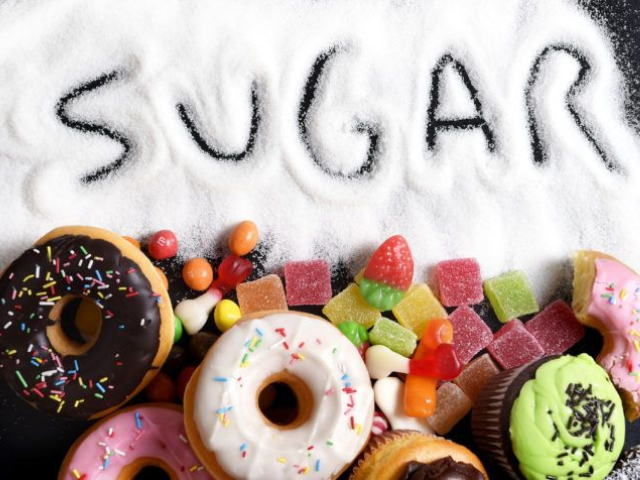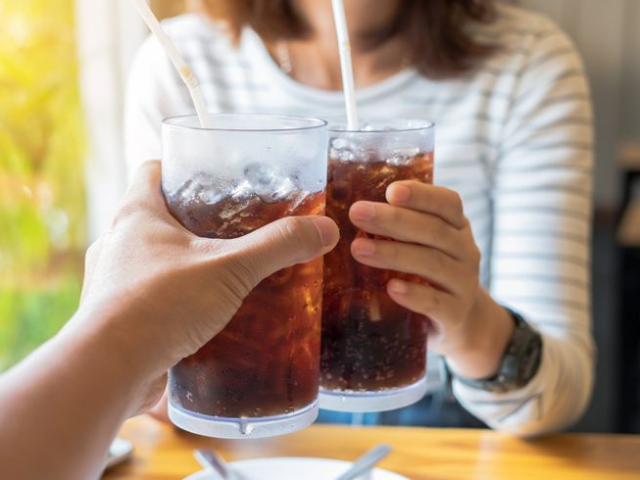A detailed guide on foods to avoid, including healthy options to replace them.
Are you pre-diabetic or do you already have diabetes? Today's video is
for you who have this condition and for those who want to avoid the development
of this disease, which is very prevalent nowadays.
People are eating very poorly outside the home, buying ready-made meals, and always lacking time to cook their own food. Most people with pre-diabetes and diabetes are overweight, and all of this favors the development of this disease.
I want to address a very relevant topic regarding the diet for diabetics or pre-diabetics. Let's get to the 10 worst foods for those who have pre-diabetes or diabetes.
First
food: refined sugars.
This ends up being very harmful for those with diabetes or those predisposed
to being diabetic. These glucose spikes can cause serious complications in the
future, such as cardiovascular complications, nerve damage, and kidney
problems.
A valuable tip to satisfy your sweet tooth is to use natural sweeteners
like stevia or consume fruits, which contain fibers that help slow the
absorption of sugar and provide a more gradual increase in blood glucose. This
way, you can control your blood sugar levels much better.
Second food: white bread and refined flour.
This can cause blood glucose spikes and have a similar effect to refined
sugars. A better alternative is to opt for whole-grain bread or those made with
alternative flours, such as almond flour or coconut flour.
These types of flour have a lower glycemic index and contain more fiber,
which helps control blood glucose levels more effectively. Additionally,
fibers promote satiety, helping to control appetite.
Another thing, always check the labels on foods. Today, manufacturers are required to state the percentage of whole grain flour in the bread you buy at the market, so always keep an eye on the labels.
Third food: French fries and fried foods.
What seems harmless turns out to be doubly harmful for those with
diabetes. The saturated fats found in fried foods increase the risk of
cardiovascular diseases and inflammation throughout the body.
Instead, you can enjoy fries made at home. Slice the potato, add a
little olive oil, a pinch of salt, and put it in an Air Fryer, for example.
It’s a great way to cut down on excess fat.
You can also use sweet potatoes or other tubers like mandioca (cassava)
to roast in the Air Fryer or even in the oven. They taste great. At home, we
add lots of natural herbs and seasonings, which makes them very flavorful.
Try it at home and tag me on Instagram. My Instagram is @dr.iano. Make
some nutritious and delicious food, and tag me so I can make sure to repost it.
fourth
food: sugary cereals.
Breakfast cereals are full of sugar and refined carbohydrates. They
cause the same issue—glucose spikes early in the day—so they are not ideal for
those who need to keep glucose levels stable.
Opt for whole-grain cereals without sugar or oats. Oats, in particular,
are an excellent choice because they are rich in soluble fibers, which help
control blood glucose levels.
You can also add fresh fruits, nuts, or seeds to enhance the flavor and
increase the nutrients in your breakfast. Look at all the things you can
do!
Fifth
food: sugary drinks.
In fact, these drinks are empty calories that disrupt your blood sugar
and the proper functioning of your digestive system. Additionally, they can
also be addictive. Who isn’t addicted to a Coca-Cola, for example?
If you’re addicted, let me know in the comments because I’d like to hear
about it. But opt for natural and healthy beverages, like plain water,
unsweetened tea, or fruit-infused water.
You can make your own flavored water by adding slices of lemon, orange,
cucumber, or mint leaves to a pitcher of water. It will be flavored, delicious,
and much healthier.
Sixth Food: alcohol.
If you choose to drink, do so in moderation and opt for beverages with
less sugar, such as dry red wine. It’s important to always discuss with your
doctor the safe amount for you.
Additionally, never drink on an empty stomach; always combine alcohol
consumption with healthy foods to help stabilize glucose levels. If you don’t
drink, that’s perfectly fine—everything is great!
Seventh food: fast foods.
These types of foods are rich in fats, sugars, and refined
carbohydrates, and they are also highly caloric. They disrupt your glucose
levels and cause weight gain, which is another complicating factor for
diabetes.
The best option is to prepare meals at home with fresh, healthy
ingredients that you choose yourself. Opt for lean meats, fresh vegetables,
whole grains, and healthy fats, like those from extra-virgin olive oil and
avocado.
Cooking at home can be a chance to try new recipes and flavors. I like
to cook; sometimes I burn things or make mistakes, but I enjoy taking risks in
the kitchen. Most of the time, the food turns out well.
Eighth
food: full-fat dairy products.
Full-fat dairy products, like whole milk and yogurt, have more fat and
can increase cholesterol and blood glucose levels. Be very careful, as
diabetics already have an increased risk of cardiovascular diseases.
Always opt for skim or plant-based alternatives, such as almond,
coconut, or soy milk. These products have less fat and are healthier for
diabetics.
Additionally, many of these plant-based milks are fortified with
vitamins, minerals, calcium, and vitamin D, which are very important for our
bone health. It's worth trying them out.
Ninth food: By now, you might be wondering how many foods you shouldn’t
consume. It might seem like a lot, but it’s not, everyone. There are many
options for you to eat. What often happens is that you tend to eat the same
things and think that’s all that exists. The important thing is to remember
that the more natural your diet is, the more you cook your own food, and the
more you think about what you’re eating, the better your health will be. So,
Ninth
food: industrialized sweets and desserts.
A good alternative is to make your own desserts. You can use natural
sweeteners or low-glycemic ingredients, such as fruits and nuts. You can create
delicious and healthy desserts like oat and banana muffins, chia pudding, or
sugar-free apple pie. It’s definitely possible to satisfy your sweet tooth
without compromising your health.
The tenth food: processed foods.
Make simple meals using fresh vegetables, lean proteins, and whole grains. There’s no secret to it. To summarize, avoid: refined sugar, white bread, fried foods, sugary cereals, sugary beverages, excessive alcohol, fast food, full-fat dairy, industrialized sweets, and processed foods. This will be essential for keeping your glucose levels under control.
You’ll find that by changing your diet, you’ll gain much more quality of
life.
read more: See how Lemon Water Can Help with Weight Loss for 30 days














0 Comments